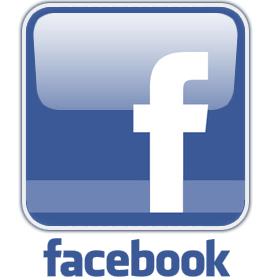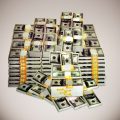Facebook – Login and Welcome
A Realm of Many
Until just recently, social networking was a dark matter, an absolutely unknown field for many, including computer aficionados. It all began with dating sites, and university networks and turned out to be the latest fashion and most developed field of the Internet (maybe apart of piracy that is). Even though many people know only Facebook, Twitter, Google+, and maybe LinkedIn, history recalls many different names and titles of social networking sites such as Bebo, MySpace(admit it, you didn’t think about it in the first place), LiveJournal, and more. So, what made Facebook better than the others so that it would live on and become the biggest one of the lot with a movie, a book, and millions of users worldwide?
How Facebook Was Started
The actual history of Facebook is said to have begun in 2003 when, in a series of attempts to find the right way into making a successful online service for his Harvard social media project, the young sophomore Mark Zuckerberg put up the pillars that are today holding the heavy body of the world’s most populated online community. At that time, the creator of this phenomenon takes the basis of a failed project Buddy Zoo, released and stopped by a high schoolmate of his named D’Angelo. Buddy Zoo was the basis of CourseMatch (Zuckerberg’s network where one could see which courses their friends go to at Harvard) and Facemash (a program where people could vote between two pictures of other students, rating according to attractiveness). The first sign of Facebook comes in 2004 when the young psychology student Mr. Zuckerberg opens the Harvard community known as “The Facebook”.
“The Facebook” has earned itself quite a huge name among the Harvard society of that time: within 24 hours of its launch, tens of thousands of students entered and within the first week – almost everyone was inside it, watching the official profile images of each other, reading the basic information and, as a whole, enjoying a program they wouldn’t have ever seen if it weren’t for the young Mark.
Currently, what is left inside of Facebook (a.k.a. FB) is nothing like the original, the basic form of the project… except maybe for the blue and white color scheme, that is. We have live chat, integrated flash games, profiles of companies, musicians, politicians, and TV shows – there is everything in today’s Facebook. It’s like the online impression of the world nowadays, including the bullying (called cyber in this case), the thefts (of identities), the daily quarrels (through personal or wall posts), and even marriages, divorces, and births. There is nothing that can happen outside which will be left outside of FB. The only problem is the lack of actual physical communication and relationships, but does that really matter? Whenever an event is created, the people who will participate actually meet; many people are friends in real life after meeting up on Facebook thanks to a game, a shared event, or a cause.
Who would’ve imagined this project would end up being as huge? Hardly anyone, I suppose. However, it has become a world-spread phenomenon – bigger than even Bing, which was supposed to be the better Google. On October 1st, 2010 a movie entitled “The Social Network” was released in theaters across the globe. It was an unimaginable success being watched once, twice, or even three times by people who would want to know more and more about the creator of the social network – Facebook.
Today Facebook is the second most popular website in the world. It has around 500 000 000 users and the site is valued at $84 000 000 000 (84 billion US dollars). This price is based on some recent purchases of the company’s shares. This means that every profile there is worth $168. This is really amazing… Pretty nice for a student, who created all of this out of nothing :).
The Internet and the computer as a whole play a great part in our lives. There is no doubt about it. What matters is to not let it ruin your own passion for life and to hook up with real-life people. Otherwise, there is nothing evil, bad, or even slightly disturbing about the codes and algorithms themselves – Facebook is what the users made it out to be. What Facebook was created for, was to show information and to make a community united – did it succeed at a bigger scale than just Harvard or not? Why don’t you share this post on your Facebook wall and check it out?
You can use the buttons at the left side of the site … 😉



